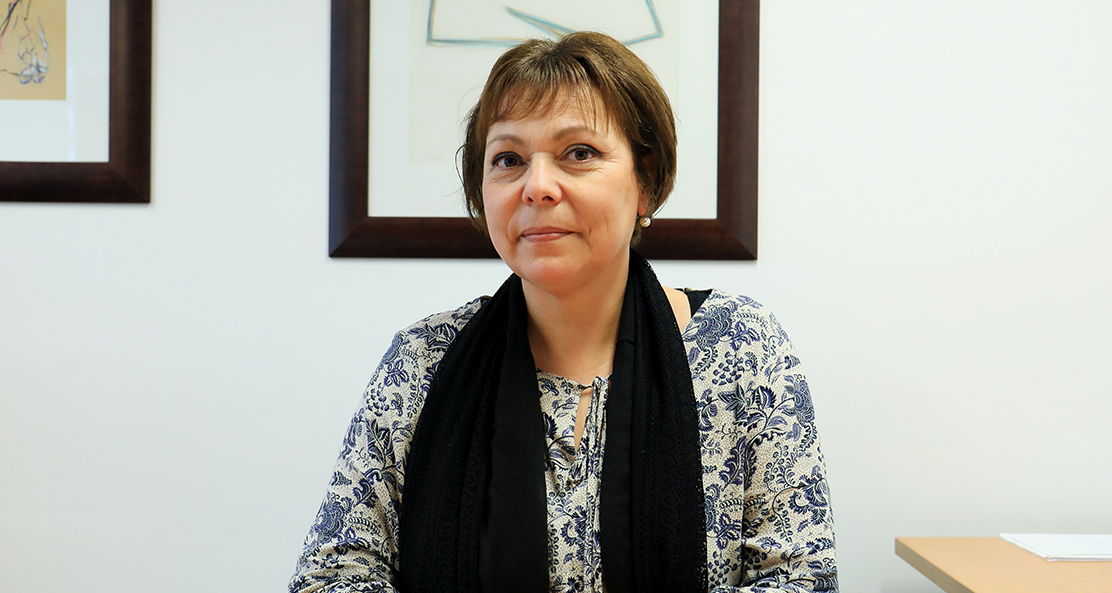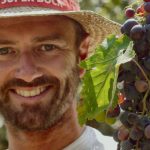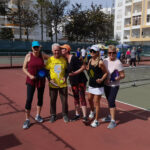By Sophie Sadler
Tomorrow magazine interviews Councillor Sara Coelho, from Câmara Municipal de Lagos, to learn more about their work and commitment to culture.
Can you tell me more about your job and what it entails?
I am a councillor of the Municipality of Lagos, a political position that results from an election for a four-year term. I work within culture, education, social housing and action and the municipal kennel, among others. These are areas of work with which I have always identified myself. I am a trained psychologist, so I must have a humanistic view of what surrounds me.
I worked for many years in the areas of employment and education and training for adults and young people which allowed me to have close contact with a large part of the Lagos population, as well as with the business community and associations. I, therefore, understand their problems and needs, strategies and motivations.
My job as a councillor is to define strategies and measures that allow the development of the areas I oversee, working with the City Council’s teams and with the partners of various entities outside the Câmara. Understanding what is happening in the Algarve, in the country and in the wider world is essential so that we can choose, decide and act. In this role, we have to be aware of what surrounds us in order to innovate, adapt or maintain the answers we can give, as a municipality.
Do you come from Lagos?
I was not born in Lagos but in Lisbon, where my parents lived. However, I have roots in Lagos because my whole maternal family was born here. I came to Lagos with my family when I was seven and it has been here that I have followed my life and career. Here I spent my childhood, youth and became an adult. I am part of this land and people.
How long have you worked for the Câmara de Lagos and how does it work?
I have been a councillor for the Lagos City Council since 2016, having started to work there in the middle of the previous municipal mandate. I like to work with people and for people. I believe that the town hall – a great organisational structure – has a wide range of workers genuinely focused on working for the benefit of citizens and for those who visit us. People who, in addition to their jobs, have a human spirit and a sense of service. As a councillor, I always wanted to work with team spirit.
With my team, I try to find the best solutions as this is a function of great social responsibility. There is a constant challenge in this role, which is to remain current. The world does not stop and we have to accompany it.
For example, as a measure that aims to lead young people to create their jobs, innovate and develop the municipality, we entered into a partnership with the University of Algarve, with a focus on entrepreneurship, which enables students to understand what it is to be an entrepreneur and how they can become one. Another measure was to modernise classrooms with the latest interactive panels, as classes are no longer just made up of books.
What are your main challenges?
In the areas in which I am responsible, I consider the main challenges are centred on resolving the issue of homelessness in the municipality, on the attractiveness of cultural activities, on maintaining modern and innovative schools, on providing the population with the greatest difficulties with instruments to reduce or solve their socio-economic problems. The town hall has an important and, perhaps, increasingly important role in view of the current pandemic situation in which we find ourselves.
What do you think Lagos has to offer as a cultural centre, why are you focusing on this?
Lagos is a municipality traditionally associated with the arts. The municipality has been investing in culture in a wide range of areas such as books and reading, singing, plastic expression, theatre, dance and music and the art of traditional sweets. We have made a great effort to provide a vast and diverse cultural centre that serves different types of audiences and interests. We have also been concerned with having an educational function, taking art to children and young people, namely through schools.
In Lagos, it is very easy to find a club or an association where you can develop and experience cultural activities, so we have worked on supporting these communities as a means of promoting culture. Culture is also an important instrument for the county’s tourism appeal, complementing areas traditionally dedicated to tourism such as beaches, golf or others.
The focus on culture is also fundamental for the preservation of what characterises us as a community. Not to invest in culture would be to lose our identity and we cannot allow that to happen.
Do you work with 365 Algarve? Do you think it has successfully brought more tourists to the area out of the peak season?
Since the beginning of the 365 Algarve program, we have been working both as promoters and as partners of various cultural associations. This program, which started four years ago, is an initiative of Secretarias de Estado da Cultura e do Turismo. It is funded by Turismo de Portugal and implemented by the Região de Turismo do Algarve, and has boosted the development of more significant cultural activity in the low and middle season (between October and May).
On several occasions, state funding was added to the money from the municipalities in order to develop cultural activities with a greater dimension and impact to the public. It also allows us to offer a wide range of new and innovative activities, bringing novelty and diversity to municipalities which would not have previously benefited from these events.
I consider, therefore, that the program was successful with respect to some of the objectives it intended to achieve, namely in strengthening the region’s cultural activities in the middle and low season, in encouraging artistic enterprises and a relationship between the tourism agents, culture agents and others.
The Algarve Jazz Gourmet Moments is a good example of one of the events that came up with 365 Algarve, bringing renowned Jazz artists to Lagos. With the exception of this year, due to the decrease of visitors because of the COVID-19 pandemic, the importance of this tourism program has been growing. Still, the real impact of the seeds that have been launched, and will continue to grow, remains to be seen and to be evaluated.
How were you able to achieve your goals in a global pandemic?
2020 was a completely atypical year and we’ve had to cancel a series of concerts that would occur in the county, so it is not easy to answer this question. However, I would like to emphasise that we sought to have answers that would allow cultural activity to be maintained simultaneously with the concern for compliance with safety rules regarding the COVID-19 virus such as ‘Lagos Drive-in’ concerts at the Cultural Centre and a series of online cultural activities.
I would like to highlight a new event that we intend to keep for the next few years and which was very successful: the Lagos Nights Out – Noites no Cais, a series of concerts on four consecutive days, held at Jardim dos Descobrimentos, in a fantastic calm and relaxing environment.
How have you ensured the people attending cultural events are safe?
We were able to comply with all safety rules for all cultural events that took place. The distance between seats, the disinfection of spaces after the performances, the availability of alcohol gel, the creation of circulation circuits and contingency plans for each cultural space as well as the adaptation of schedules whenever necessary were mandatory aspects for activities to take place.
Were you particularly disappointed by the cancellation of any particular event?
There were several events about which I felt some sadness because they could not be held, these being fundamentally our main events: Arte Doce, the Banho 29 party, the New Year’s Eve concert. They represent moments of joy, relaxation and sharing that we could not enjoy because of the pandemic.
Do you have any good events you are working on for 2021 which you can tell us about?
We are planning to return to normal activity this year, especially from the second semester onwards, with the aforementioned Arte Doce, Banho 29 and Lagos Nights Out – Noites no Cais, but we will add a new dimension to these popular events to make them even better. More new events are also on the drawing board, but it all will depend on the evolution of the pandemic that, I hope, will finally stop plaguing us.
Is there any message you would like to communicate to our readers?
I would like to leave you with my wish that 2021 will be a year of renewal, of change and celebration of the effort that we all made to overcome this crisis we are passing through. May it also be a year in which we can finally be close to each other and to our family and friends.















